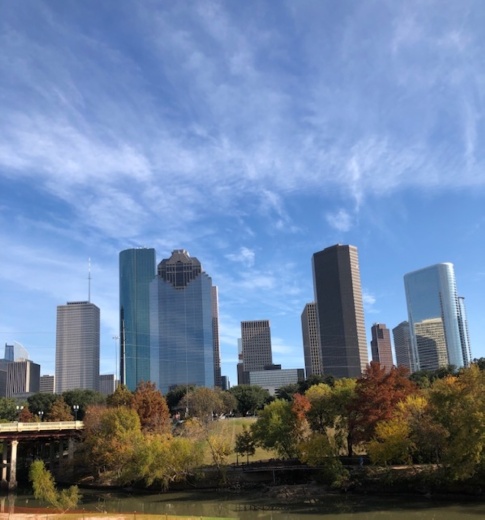In the past five years alone, he has seen the fortunes of Houston’s major economic sectors rise and fall after the oil and gas downturn of 2015 and the devastation of Hurricane Harvey in 2017. The economy’s brush with the coronavirus this month, however, is something new, he said.
“We haven’t had a situation like this before,” Jankowski said in a March 17 phone interview. “It’s not like a hurricane, because with a hurricane we know when It’s going to hit, when it makes landfall and when it’s going to be over Houston. We have no idea when the worst of the virus will hit.”
Within a week, Greater Houston-area school districts have announced closures for weeks at a time; local governments have enacted emergency measures; and the region’s largest population centers—Harris County and the city of Houston—have closed down many areas of public life, including dine-in restaurants and bars.
Jankowski said there is typically a surge in activity after a hurricane as everyone starts to rebuild, but the damage from the ongoing coronavirus outbreak is not structural damage but psychological.
“There’s going to be some type of tipping point because even if we start to get reports that things are subsiding and getting better, the consumer is going to be reluctant to go back out until they know there’s not going not be a second spike,” he said. “It’s difficult to try to model and make determinations.”
Despite the potential short- and long-term job loss for many residents, Jankowski said the shutdown does not necessarily mean a recession is imminent.
“I’m still fairly comfortable that we’re not going to go into recession, but we’re going to have much slower growth,” he said. “I had already forecast that energy would lose 4,000 jobs [in the Houston metro region], and I’m going to need to double that or triple that. I forecast a loss of 2,000 jobs in retail, and I might need to double or triple that.”
The Houston-area economy is tied into the U.S. as well as the global economy and will follow those trends, but signs currently point toward a slump in the second quarter of the year and growth returning in the third and fourth quarters, he said.
Instead of gross domestic product growth of 2.1%-2.2% , it will probably be 1.4%-1.5% growth, he said.
“As long as the U.S. economy grows, that gives me hope for Houston,” he said.
The health care sector in the Greater Houston area was already set to be the leading sector in 2020, and demands on that sector will increase this year under the current conditions, he said. Health care was expected to grow by about 7,900 jobs, and that is likely to increase by another 1,000 or 2,000, he said. However, with the demands placed on it and the fact that about 20% of Houstonians lack health insurance, the system will also be under financial strain, he said.
“If you have to use one word to describe Houston’s economy, that would be resilient,” Jankowski said. “We’ve shown that time and time again whether dealing with collapse in industry prices or the Great Recession ... we’re going to struggle over the next six to eight weeks, but we’ll come out of this fine.”





